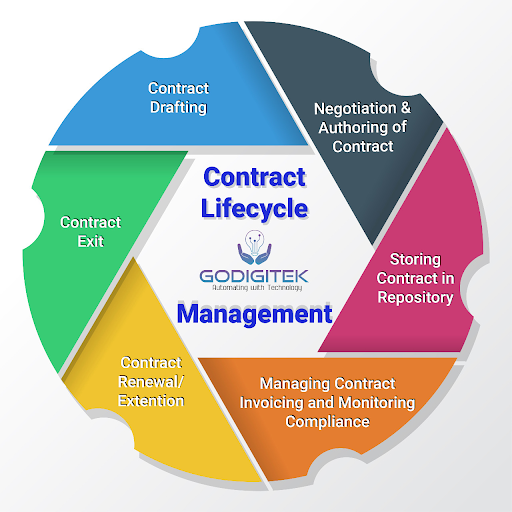Contract Management System

When a company buys something there are various options for procurements. One of the options is to do an agreement or contract. In this, a legal agreement is made along with the terms and conditions of both parties. Traditionally the contracts are printed on paper. As the complexity of business, technology, and digital transformation is increased the digital licensing of agreements is increased. A contract formation process includes six steps
- Create
Employees create contracts with all the terms and conditions and then send them to the supplier and then print them on the papers. Every time a new contract needs to be typed or it is copy-pasted with some changes in it. There are chances of errors.
2.Collaborate
A contract needs the collaboration of a lot of people. Lawyers, parts of various teams, etc. It takes a lot of time to meet all the people concerned and form an agreement.
3.Negotiate
The first draft is reviewed by both parties. They negotiate about the contents of the draft contract. This takes a lot of time and paper.
- Sign
After a contract is formed both parties need to sign for the amendment of the contract. For signing the contract you need to meet all the concerned people and get their signatures on them which is time, energy, and money-consuming.
4.Track
If your contracts are piled up in your office cabinets then it is difficult to find a particular contract and track the dates, clauses, renewals, etc.
5.Renew
Renewal of contract means to start the contract lifecycle again. Long relationships with businesses can be sustained by renewals of contracts.
Why do we need it?
- Messed up contracts
- Faults in agreements
- Lot of paperwork
- Unorganized data and agreements
- The overwhelming volume of contracts
- Decreased speed
- Legal risks
- High cost
- Decreased efficiency
- Time-consuming
- Chasing people for signatures
Key points
- Organized and structured contracts
- Error-free
- Digital contracts
- Increased efficiency and attention to core areas
- Reduced cost
- The huge volume of contracts managed by a single software
- Alerts about the obligations and renewals
- No need for in-person meetings
- Faster
- Digital signature
- Accessible from the phone as well as desktop
- Inbuilt contract templates
- Shareable
